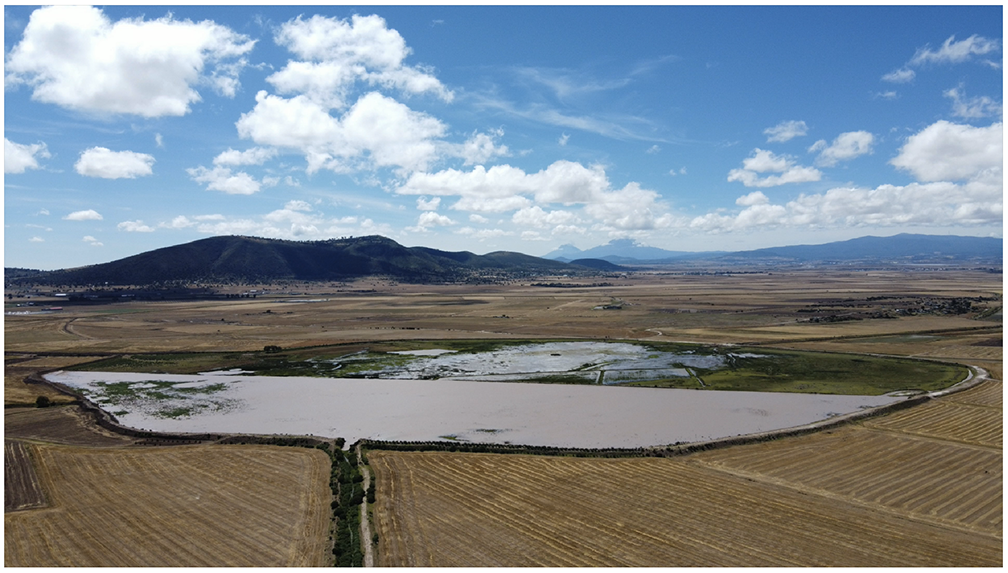
GSD Collaboration Pursuing New Urban-Rural System Pathways in Hidalgo to be Featured at COP 26
Samuel Tabory is a PhD student in urban planning at the Harvard Graduate School of Design. He studies the governance and negotiation of urban-regional systems transitions, paying attention to questions of scale, infrastructure, and boundary. Trained both as a planner and a Latin Americanist, comparative and global perspectives inform his work.
Researchers from the GSD, in collaboration with eeTestudio of Mexico City and a team of Mexico-based technical experts and researchers, are working with ejidatarios and governments in Hidalgo state, in an area known as the Apan Plains, to explore pathways for urban-rural systems transformation. The project focuses on forging opportunities for contemporary and diverse livelihoods, more sustainable agricultural production, landscape regeneration—including the recharging of the region’s over-exploited aquifer—and new models for integrated territorial governance.
The Apan Plains are a highland agricultural region just 90 minutes by car from Mexico City. The region shares the same topography and original wetland landscape as Mexico City. That landscape is currently dominated by rain-fed barley production for multi-national beer manufacturers. The decade’s-long structural transition toward such export-oriented mono-crop agricultural production is proving maladapted, both socially and ecologically, under the temperature swings of local climate change and desertification that have accelerated in the region.
With a dual focus on nature-based solutions and landscape design interventions, on one hand, and regional territorial governance innovation on the other, the project is pushing forward applied research on what it means to govern and transform a threatened urban-rural landscape and settlement system in the Anthropocene.
The project is funded by the UK PACT climate transformations program, administered by the British Embassy in Mexico. The work will be showcased via video at the UN Framework Convention on Climate Change’s annual Conference of Parties (COP) to be held in Glasgow, Scotland in November. Widely anticipated to be a landmark year for national GHG reduction commitments, COP 26 will be a proving ground not just for climate pledges among nations, but also a platform for disseminating knowledge about the practical and local work of pursuing system transformation to support both achieving those commitments and adapting to rapidly changing environmental conditions on the ground.
The principal GSD research team includes Professor Diane Davis, Lecturer Lorena Bello, PhD student Samuel Tabory, and recent MLA/MDes graduate Juan David Grisales. A broader team of interdisciplinary graduate and undergraduate students also made contributions to the project, including recent MUP graduate Charles Hatfield, PhD student Ziwei Zhang, as well as Harvard College students Layla Seaver and Kate Laumann Wallace.




